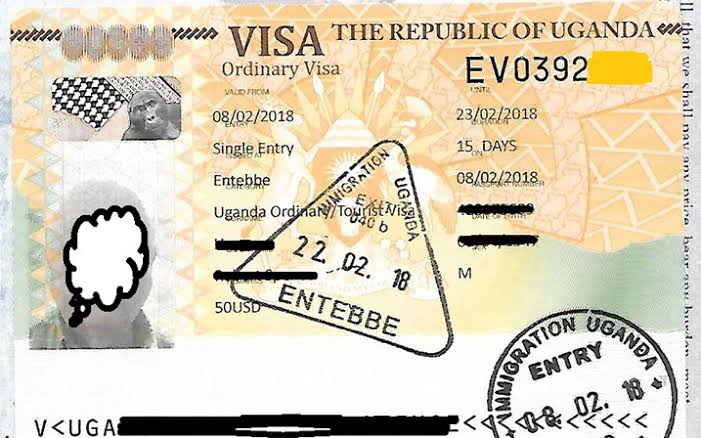Why Visit Rwanda’s Nyungwe Forest?
May 2, 2025What’s the Best Rwandan Dish?
May 3, 2025Are Rwanda’s Lakes Worth Visiting?
When I first stepped onto Rwandan soil, I came for the gorillas. Like many, I was drawn to the dense mist of Volcanoes National Park, with its silverbacks and ancient trails. But what I didn’t expect what I wasn’t prepared for was the soul-stirring calm I found near the lakes. Rwanda’s lakes don’t just sit quietly in the background; they speak. They whisper of healing, history, resilience, and joy. They hold the laughter of children, the rhythm of paddles on water, and the echo of birds greeting the day.
If you’re wondering whether Rwanda’s lakes are worth visiting, let me take you beyond the brochures and Instagram captions. Let me take you to the water’s edge.
Lake Kivu: Where the Water Meets the Sky
Lake Kivu is a place that humbles you. I remember standing on its shores in the town of Kibuye, watching the sun melt into the horizon in shades of gold and lavender. There were no filters, no edits. Just real, raw beauty. The lake stretches along the western border, cradled by green hills and framed by the distant Congo. It’s one of Africa’s Great Lakes, but here, it feels personal.
What makes Lake Kivu special isn’t just its postcard scenery. It’s the pace of life around it. Locals smile as they prepare grilled tilapia by the roadside. Fishermen glide by in their wooden boats, their songs echoing across the still water in the early morning. It’s a place where you don’t just visit you become part of its rhythm.
I took a boat to the peaceful Amahoro Island “Peace Island†in Kinyarwanda. No roads, no cars, just birdsong and the sound of my own breath slowing down. That’s what Lake Kivu offers: a reminder to breathe.
Lake Muhazi: A Hidden Gem For Dreamers
I hadn’t planned to visit Lake Muhazi. It came up in conversation with a Kigali café owner who said, “It’s where we go when we need to think.†Curious, I rented a car and made the easy 45-minute drive east of Kigali.
Muhazi doesn’t shout for attention. It’s long, narrow, and winding, almost like it’s trying to hide. But what you find when you get there is silence the good kind. The kind that lets you hear yourself again.
There’s something sacred about the early morning mist on Lake Muhazi. I stayed at a simple lakeside guesthouse and watched fishermen begin their day. There was no rush. Just a deep sense of presence.
One evening, I joined a group of locals for grilled brochettes and local banana wine. We didn’t all speak the same language, but somehow, laughter filled the space. That night, under a sky glittering with stars, I understood why people come here to think and to heal.
Lake Burera and Lake Ruhondo: Twin Reflections of the Soul
Nestled at the foot of the Virunga mountains, these twin lakes are not just beautiful they are breathtaking. Imagine water so still it mirrors the sky. Imagine looking up at mist-covered volcanoes and down at their perfect reflections. That’s what I found at Lakes Burera and Ruhondo.
The journey to get there isn’t always smooth. The roads are bumpy, and you may need a 4×4. But once you arrive, it’s like stepping into a painting. What struck me most was the feeling of isolation not in a lonely way, but in a freeing one. These lakes are places to disconnect from the noise and reconnect with what matters.
I met a local woman named Chantal who runs a small eco-lodge. She showed me how they use volcanic soil to grow food and shared stories of the land’s history. “This place gives us peace,†she said, placing her hand over her heart. I knew exactly what she meant.
Lake Ihema: Wildlife and Wild Wonder
If you think lakes are only for quiet reflection, Lake Ihema will change your mind. Located in the heart of Akagera National Park, it pulses with life. I went on a boat safari here and within minutes spotted hippos lounging like royalty, crocodiles sunning on the shore, and flocks of kingfishers darting across the sky like living jewels.
The thrill of being on the water, surrounded by such untamed beauty, reminded me that nature isn’t always soft it’s alive and awe-inspiring.
Akagera is Rwanda’s answer to the classic African safari, but it’s the lake that gives it a heartbeat. Floating across its surface, I felt like a part of the wilderness, not just a visitor. There’s something unforgettable about locking eyes with a wild elephant while your boat drifts silently nearby.
Why Rwanda’s Lakes Matter (And Why They’ll Matter to You)
It’s easy to measure a destination by its attractions. But Rwanda’s lakes don’t just offer views they offer transformation.
For me, each lake told a different story. A story of survival, of serenity, of joy and connection. And what’s more human than that? We seek beauty, but we also seek belonging. At Rwanda’s lakes, you find both.
They matter because they are not overly commercialized. They haven’t lost their soul. They are places where community thrives, where nature and people coexist in a kind of harmony that feels rare in today’s world.
You don’t need to be an adventurer to enjoy them. You just need to be someone who’s ready to slow down and listen.
Practical Tips from Someone Who’s Been There
-
Getting Around: Many lakes are easily accessible by car from Kigali. Lake Kivu towns like Gisenyi and Kibuye are about 3–4 hours away. Muhazi is under an hour.
-
Stay Local: Opt for guesthouses or eco-lodges run by locals. They often offer deeper connections and unique experiences.
-
Pack Smart: Bring light layers, sunscreen, and a good camera. The mornings can be misty and magical.
-
Be Present: Don’t just visit to tick off a box. Sit by the water. Talk to people. Watch the sun rise or set. That’s where the magic happens.
Final Thoughts: More Than Just Water
Rwanda’s lakes aren’t just worth visiting they’re worth remembering. Long after you’ve returned home, it’s the moments by the water that stay with you. The quiet sunrise at Lake Muhazi. The children waving from the shores of Kivu. The call of a fish eagle over Ihema. These are the things that embed themselves into your spirit.
If you come to Rwanda, come for the wildlife, the culture, the strength of its people. But stay for the lakes. Sit beside them. Let them tell you their stories.



